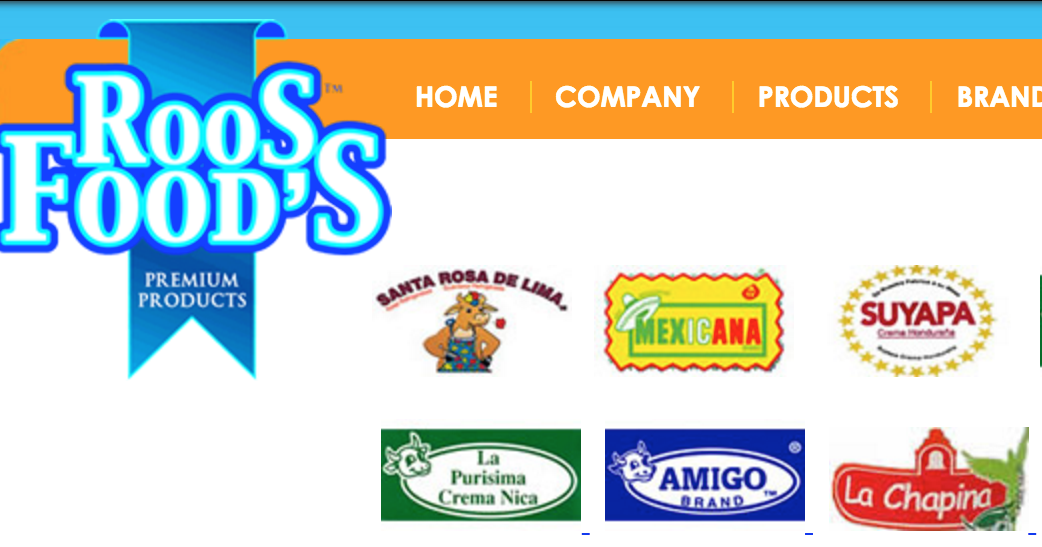Cheese Company With Leaky Roof, “Uncleanable Surfaces” Pleads Guilty To Selling Listeria-Tainted Food
 Perhaps you’d like to think that your shrink-wrapped ready-to-eat cheese was made in something resembling a science-fiction movie — stark white walls, spotless machines, a few doctor-like employees supervising the sterile process behind surgical masks. You certainly don’t imagine the conditions that got one Delaware cheese company shut down.
Perhaps you’d like to think that your shrink-wrapped ready-to-eat cheese was made in something resembling a science-fiction movie — stark white walls, spotless machines, a few doctor-like employees supervising the sterile process behind surgical masks. You certainly don’t imagine the conditions that got one Delaware cheese company shut down.
This morning, the Justice Department announced that Roos Foods of Kenton, DE, has pleaded guilty to violating the Food, Drug, and Cosmetic Act by introducing cheese products adulterated with the nasty bug Listeria Monocytogenes into interstate commerce.
In Feb. 2014, health officials in both Virginia and Maryland found the bacteria on Roos cheese product sold in stores. The Centers for Disease Control and Prevention and the FDA subsequently linked eight cases — including three newborns — of Listeria infection to cheese made at the Roos facility in Delaware.
An FDA inspection of the facility found that the products had been “prepared, packed, or held under insanitary conditions whereby they may have become contaminated with filth or rendered injurious to health.”
More precisely, inspectors found “widespread roof leaks… over open manufacturing equipment; rust flakes on the manufacturing equipment from corroded roof trusses and metal roofing; un-cleanable surfaces on walls, floors, and ceilings; and product residue on equipment that had purportedly been cleaned.”
In all, FDA inspectors turned up Listeria on a dozen different surfaces at Roos, including a cutting board, the bottom of the cheese press, scrub brush bristles, the floor drain in the refrigerated storage room, a utility table in the packaging room, and the broken welds on a mobile storage tank.
It’s possible the eventual contamination could have been prevented. A 2013 FDA inspection of Roos cited the company for not cleaning its clean food-contact surfaces as frequently as necessary, for failing to handle work-in-progress in a manner that protects against contamination. At the time, investigators observed condensation accumulated on areas above food contact surfaces and equipment, corroded and rusted equipment that was difficult to clean, and gaps in the ceiling in the refrigerated storage room.
And before that, in 2010, an FDA inspection of the Roos plant found standing water on production floors, condensate accumulations on areas above food contact surfaces, deteriorated surfaces on food processing equipment, and difficult-to-clean ceilings in the cheese curd production room.
The Roos facility was closed in 2014 and has not reopened. In the wake of the closure, the News Journal investigated why the state of Delaware never investigated the plant.
Turns out, Delaware does not do inspections of cheese makers in the state. However, state inspectors did do regular checks of a separate part of the Roos facility that made sour cream. Following the shuttering of the cheese operation by the FDA, the state also closed down the Roos sour cream production, even though none of that product had been linked to the Listeria illnesses.
As part of a consent decree [PDF] tied to the guilty plea, the company’s principals must give the FDA 90 days notice if they are to ever resume operations, and only then after passing an FDA inspection. They would also have to retain an independent testing lab to detect for the presence of Listeria.
Want more consumer news? Visit our parent organization, Consumer Reports, for the latest on scams, recalls, and other consumer issues.

